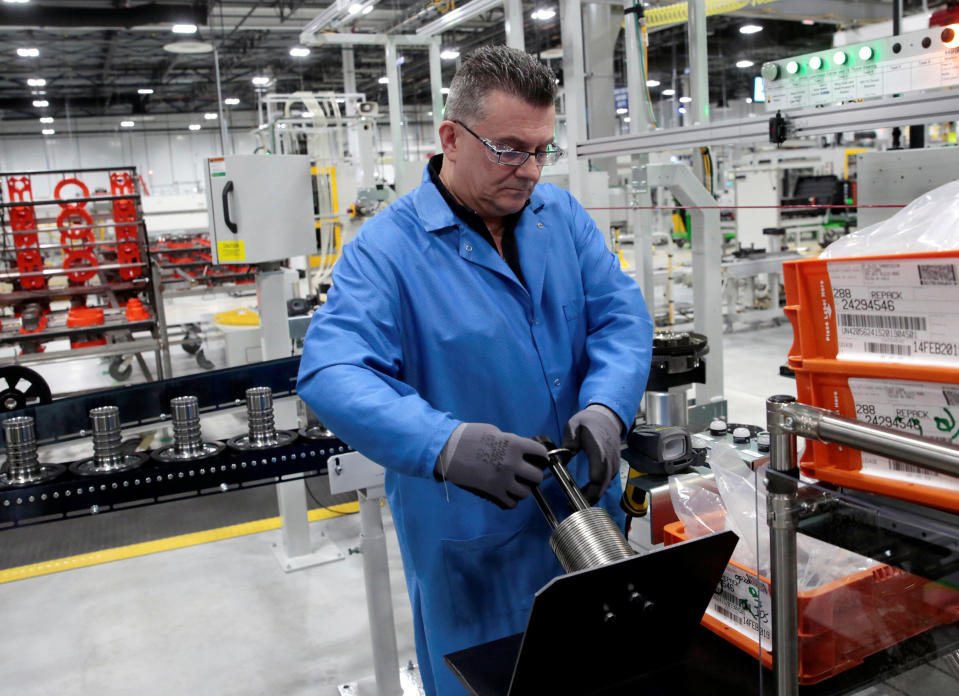What GM wants from Trump on trade
General Motors has survived the Trump tariffs, so far. But Trump’s threats to hike tariffs on auto imports and other components could hurt the nation’s biggest automaker, along with its employees and customers.
“I wish we had a little more certainty,” GM president Mark Reuss said at the ”Wall Street Journal Future of Everything Festival” in New York. “So we know what’s going to happen. We’ll adjust the business.”
Trump has threatened to hit all imported cars and car parts with a 25% tariff, as part of a negotiation strategy aimed at Europe and Japan. Such tariffs would raise the average cost of a car by $2,450, cut car sales by 1.2 million units per year and kill 197,000 jobs, according to the Center for Automotive Research. No automaker favors those tariffs, but if they’re coming, the automakers would prefer to know what the new rules are going to be, with enough predictability to work the new costs into long-range planning.
The threatened tariffs on auto imports would be in addition to new tariffs Trump has already imposed on steel and aluminum imports and hundreds of products from China. GM said last year the steel and aluminum tariffs added more than $1 billion per year in higher costs. It also said tariffs on auto imports would “lead to a smaller GM … and risk less—not more—U.S. jobs.”
Last November, GM announced the layoff of 14,000 workers and the closing of five factories, including one in Lordstown, Ohio. President Trump implored GM to find a way to keep those jobs in Ohio, but his trade policies are making it harder, not easier, for GM and other automakers to trim costs and hire more workers.
Looking for certainty
No automaker wants to pay more for imported components. And GM, as a big domestic producer, might benefit more from protective tariffs than some of its competitors. Still, the auto industry is thoroughly global, with many parts shared among different models on every continent. No automaker is strictly “foreign” or “domestic” any more, and virtually every foreign-based automaker has factories in the United States—just as GM, Ford and Fiat Chrysler build some of their vehicles overseas.

If new tariffs raise costs for every automaker more or less the same, they might share the pain evenly. But the Trump administration has sometimes fine-tuned tariffs, exempting some products while fully taxing others, in ways that benefit one set of companies over another.
“It depends on which cars the tariffs exist on,” Reuss says. “All those things change the dynamic in the industry. It’s certainty we’re asking for.”
Certainty is probably not what Trump wants to offer, however. He seems to think his negotiating leverage is stronger when he threatens actions that are more damaging—whether it’s U.S. or foreign firms at risk. Better, in the Trumpian view, to keep everybody guessing. The home team included.
Confidential tip line: rickjnewman@yahoo.com. Encrypted communication available. Click here to get Rick’s stories by email.
Read more:
This week in Trumponomics: Tariffs bite
Trump’s low threshold for stock-market pain
How Trump is blowing it with voters
Why Medicare for all is doomed
Joe Biden’s economic views need a major update
Rick Newman is the author of four books, including “Rebounders: How Winners Pivot from Setback to Success.” Follow him on Twitter: @rickjnewman

 Yahoo Finance
Yahoo Finance 
